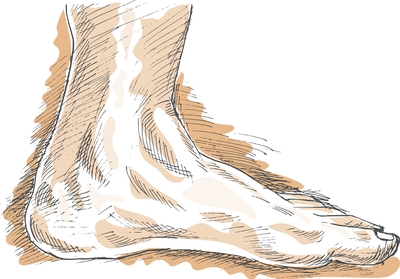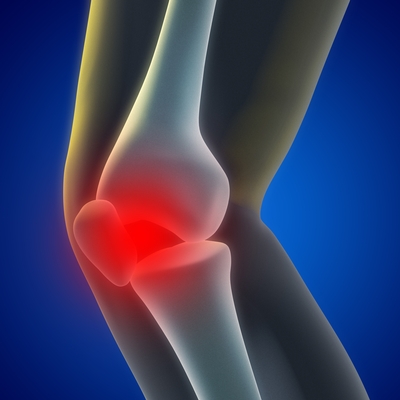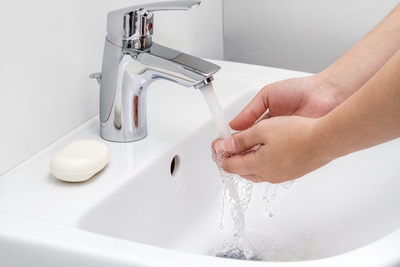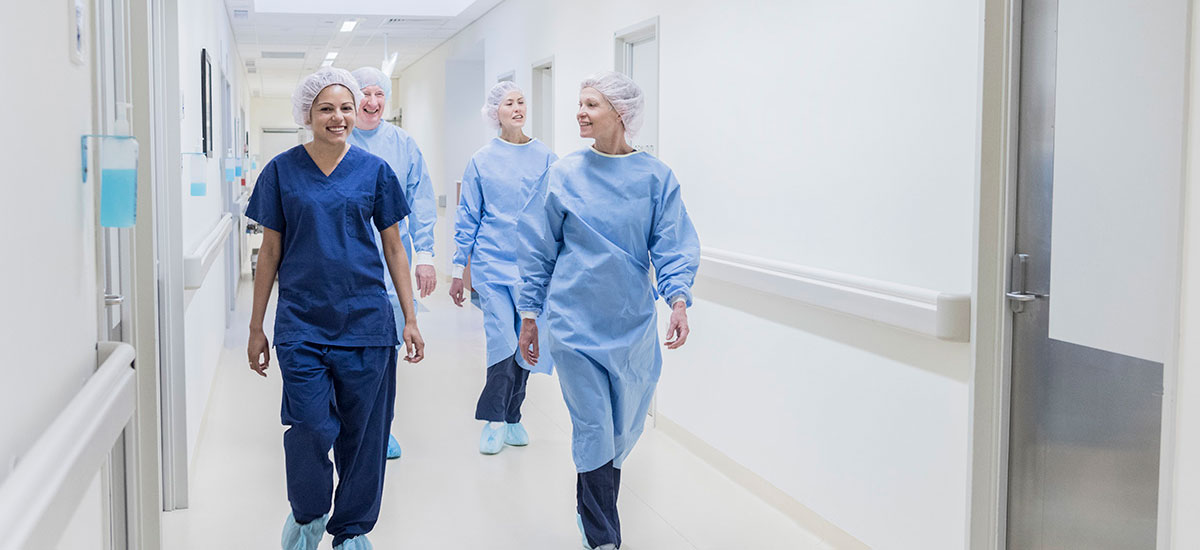Exercise After Back Procedures

When a patient leaves the recovery room at Specialty Surgical Center, they are given a list of post-operative instructions. This list is critical to healing and avoiding infections once the patient gets home. The instructions are intended for use during the first few weeks of healing, but there is more to the road of recovery. Rest is a large component, but many patients are eager to get back to exercising. Fortunately, exercise is a great form of physical therapy! Some patients need physical therapy to strengthen their newly healed muscles post-operatively. This is because when patients are resting after surgery, their muscles get weak and need to be strengthened again to support the body. For those eager to get out of bed and back to their active lifestyles, they certainly can get back to exercising, but the amount of time they need to wait depends on their procedure.
Chiropractic – After a spinal adjustment or spinal manipulation has been performed, patients do not need to wait before exercising. Patients can exercise the same day, but he advises patients to be cautious. Muscles around the spine could be weaker so patients should start with a light work out. Avoid twisting the spine suddenly and remember to practice good posture.
Discectomy – Spine surgery takes a little longer to recover from. After the patient’s spine surgeon gives the ok, patients can start their physical therapy by doing light back stretches. When they feel ready, patients can start low-impact exercises like swimming or walking. Then, patients can move on to weight bearing exercises and other back strengthening techniques around the section of the spine where the surgery took place.
Vertebroplasty or kyphoplasty – These minimally invasive spine surgeries are most effective at relieving back pain and spine conditions when paired with physical therapy during recovery. Similar to discectomy, our physicians recommend strengthening exercises so the muscles can support the spine once the rest period is over. Additionally, patients can work on stability and balance.
Physical therapy is important in the recovery process because it helps patients transition back to an active lifestyle easier. Exercise increases the blood flow to the area to promote healing and functionality after a Specialty Surgical Center procedure. While we do recommend our patients exercise to gain their strength back, we strongly suggest using a physical therapist. Physical therapists are specially trained to find exercises that most help after your type of surgery. They also have tools on site like ice, braces, and more to help ease any pain. If any patient wishes to attend physical therapy after their procedure, our physicians would be happy to recommend a few in the Sparta, New Jersey area.
Specialty Surgical Center is located in Sparta, New Jersey and our staff consists of board certified surgeons and anesthesiologists performing procedures in Orthopedics, Sports Medicine, Spinal Care, Podiatry, Urology, Pain Management, ENT, Hand Surgery, Lithotripsy, Brachytherapy, GYN and Laser Surgery.
For more information about Specialty Surgical Center, call 973-940-3166 or visit our Contact Page.
What Are Facet Joint Blocks Used For?

Facet joints are found all along the spine on both sides between the vertebrae. They can cause a lot of pain when damaged and can make moving the spine very difficult, and at times, seemingly impossible. There are a number of reasons something could be wrong with the facet joints, but they usually cause pain due to injury or degenerative disease.
A facet joint block does two things: relieve pain and finding the true source of pain. Even though Specialty Surgical Center is known for surgical procedures to residents of New Jersey, a facet joint block isn’t a surgical procedure at all! It is actually an outpatient procedure that takes very little time. First, a physician will numb the area using an anesthetic injection above the facet joints, so patients might not even feel the bigger needle during the procedure. Then, using a fluoroscope (a type of X-ray device) in our office, the physician will guide the needle into the facet joint and release a dye. Without taking the needle out of the patient’s back, anti-inflammatory medication and anesthetic are put down the needle and into the facet joint. If more than one area of the back hurts, the physician may give multiple facet joint block injections in one sitting.
The procedure may relieve pain immediately or shortly after the procedure. But if patients do not feel relief, it means that the facet joints are most likely not the source of the pain. If this is the case, no harm should come as a result of the misdiagnosis. Patients do not usually experience negative side effects from a facet joint block if the facet joints are not the issue. However, some patients may feel a little soreness from the injection, but it should not last more than a few days. Over-the-counter pain medication can help, but always be sure to ask your physician about post-operative care just in case.
Similar to prescription pain medication, a facet joint block does not last forever. For some patients, the pain relief can last for several weeks, and for others, it could last months. Your pain management specialist at Specialty Surgical Center is available for follow up appointments to see how you are responding to the treatment and whether or not they recommend having the procedure repeated.
Specialty Surgical Center is located in Sparta, New Jersey and our staff consists of board certified surgeons and anesthesiologists performing procedures in Orthopedics, Sports Medicine, Spinal Care, Podiatry, Urology, Pain Management, ENT, Hand Surgery, Lithotripsy, Brachytherapy, GYN and Laser Surgery.
For more information about Specialty Surgical Center, call 973-940-3166 or visit our Contact Page.
Ankle Arthroscopy

The best advice for treating a bone after an injury is to rest. However, when the injury is to the ankle, it can be difficult to avoid moving it since we depend on the ankle so much for mobility. Ankle pain is often treated with medication or physical therapy, but when these options fail, patients may have to consider surgery as an option. Luckily, surgery is very low risk thanks to new minimally invasive technologies.
Since ankle arthroscopy is minimally invasive, the Specialty Surgical Center team only needs to make a few small incisions. This allows the ankle to heal quicker and makes the recovery time a lot shorter for patients. Arthroscopy simply means that our surgeons will use an arthroscopic camera to help them. This device is very tiny and thin. It goes into the incision and displays a video of the inside of your ankle onto a screen in the operating room. It zooms in on features of the ankle so that our surgeons can see inside without having to cut more incisions to see what they’re doing.
There are three major bones in the ankle, and they can get broken or fractured if the ankle is accidentally rolled or if you jump and land on the ankle with a lot of force. Ankle arthroscopy is not typically used to place the bones back together. Instead, it is used to remove any bits of bone that may have broken off causing discomfort. Similarly, the bone can be shaved down if it grew back irregularly and the bone is putting pressure on the surrounding tissues. Ankle arthroscopy can also heal any tissues or cartilage that have been torn away or damaged.
While patients suffering from arthritis of the ankle may have a similar procedure, the reasoning is very different. In order to repair damaged joints in the ankle, a surgeon must go in to remove tissue if it has become infected. They can also ankle fusion performed to help treat their arthritis pain in a minimally invasive way.
If you have ankle pain and you know that it is not a fracture or arthritis, do not worry. There are a number of other conditions that could require ankle arthroscopy. Just because fractures and arthritis are some of the most common causes, our team physicians are experts at using ankle arthroscopy to treat a variety of conditions including infection, impingement, and more. Ankle arthroscopy is also a great way to diagnose conditions. If patients don’t know the cause of their severe ankle pain, they can come to Specialty Surgical Center to help determine the cause by looking inside the ankle.
Specialty Surgical Center is located in Sparta, New Jersey and our staff consists of board certified surgeons and anesthesiologists performing procedures in Orthopedics, Sports Medicine, Spinal Care, Podiatry, Urology, Pain Management, ENT, Hand Surgery, Lithotripsy, Brachytherapy, GYN and Laser Surgery.
For more information about Specialty Surgical Center, call 973-940-3166 or visit our Contact Page.
How to Care for a Skin Graft

Caring for a skin graft after surgery is a little difficult because instead of taking care of one incision, you have to take care of both the skin graft and the donor site where the skin came from. Being on top of your post-operative care is extremely important because without proper handling, the skin graft can become infected or not heal properly. A skin graft may be needed to repair damaged skin on the body from burns, skin cancer, large wounds, and more, so the graft needs to stay clean in order to do its job without complications.
The first step to caring for a skin graft is caring for you! That means you need to keep up with any medications and rest often. Your physician may also detail any specific diets he or she wants you to pursue. You will meet with your surgeon after your procedure and get information about how long you should rest for and how often to take your medication.
Surgical dressing is often placed on the graft in the first stages of healing. It may be tempting to pick at it, especially if you feel an itch, but you need it to stay on for as long as your physician recommends (typically about a week). Keep the dressing clear from any dirt, but avoid getting it wet as this may be uncomfortable and cause it to come off. The physician may give you a new dressing or remove it depending on your progress at your follow up appointment. If the dressing is removed, he or she will tell you whether or not you can get the skin graft wet. Usually, Specialty Surgical Center physicians recommend gently washing the graft using a gentle stream of water and soap. Patients can avoid disrupting their skin graft by patting it dry with a cloth.
Caring for the donor site is very similar. Patients will have a dressing over the wound initially, but will be given instructions on how to remove it. If the dressing becomes difficult to remove, handle it with care. A little bit of water can be drizzled on to ease the bandages off. Bathing the donor site is very similar to the graft site when the bandages come off. You should avoid submerging both in a bath for long periods of time, but keep the areas clean using gentle products.
Remember to always be careful when handling the wound at both the graft site and the donor site. Always make sure you wash your hands before touching or handling the graft or any surgical dressings. If you have any questions about caring for or cleaning your skin graft, please call our Sparta office. Our physicians will be more than happy to answer your questions or repair any damaged grafts safely.
Specialty Surgical Center is located in Sparta, New Jersey and our staff consists of board certified surgeons and anesthesiologists performing procedures in Orthopedics, Sports Medicine, Spinal Care, Podiatry, Urology, Pain Management, ENT, Hand Surgery, Lithotripsy, Brachytherapy, GYN and Laser Surgery.
For more information about Specialty Surgical Center, call 973-940-3166 or visit our Contact Page.
Can Carpal Tunnel Come Back After Surgery?

It’s understandable that some patients who need to have carpal tunnel release surgery worry about the condition coming back. After all, wrist splints and pain management techniques did not work and surgery is often a last resort. Our physicians want patients to rest assured that their pain can end at Specialty Surgical Center.
The good news is that according to the Cleveland Clinic Foundation, carpal tunnel syndrome rarely comes back after surgery. However, it is possible for patients to still experience carpel tunnel syndrome symptoms after their procedure. If patients still feel pain in their wrists or have a loss of sensation in their limbs, another condition could be causing the pain. There are a number of reasons why this could happen. First, the referring doctor could have mistakenly believed that the pain is coming from the median nerve. However, the surgery is not a loss. The endoscopic procedure can look into the wrist and see if another source could be causing the pain. Additionally, our skilled surgeons can help release the nerve by removing anything pressing into it, but sometimes the nerve is too damaged for repair. It’s important for patients to come to Specialty Surgical Center soon after their diagnoses to prevent advanced carpel tunnel syndrome from developing.
However, both of these circumstances are extremely rare. In most cases, the minimally invasive wrist surgeries we do are very effective at getting rid of carpal tunnel syndrome permanently. We believe that following the surgery, patients can live a life free of wrist pain. Before then, patients may experience a little soreness post-operatively. To reduce pain after the procedure, our physicians and nurses will give you a guide on how to take care of your wound. Keeping the area clean is key to avoiding post-surgical pain and irritation from infection. Additionally, we can refer patients to a physical therapist to promote a faster recovery once the area is just about healed. Finally, be sure to rest your wrist often! Keep the wrist in a neutral position and use your hands as little as possible when recovering. Your wrist will be weaker following the surgery and will need plenty of time to rest.
The bottom line is that patients most likely won’t have to deal with wrist pain after carpel tunnel release syndrome, but they may feel a little pain after the surgery. Patients can take measures into their own hands by practicing good post-operative habits and resting when necessary, but they can also help manage their pain with over-the-counter pain medications until the incision site heals. If patients have any questions or concerns, they are more than welcome to call our Sparta office.
Specialty Surgical Center is located in Sparta, New Jersey and our staff consists of board certified surgeons and anesthesiologists performing procedures in Orthopedics, Sports Medicine, Spinal Care, Podiatry, Urology, Pain Management, ENT, Hand Surgery, Lithotripsy, Brachytherapy, GYN and Laser Surgery.
For more information about Specialty Surgical Center, call 973-940-3166 or visit our Contact Page.
The Risk of Surgery as a Diabetic

When a patient with diabetes comes in to Specialty Surgical Center, there is a certain level of precaution that must be taken. While it is unlikely that anything will go wrong during the surgery, patients with diabetes are at an increased risk of surgical complications. Because of this, we need patients to notify us about their condition so we can properly accommodate to ensure the patient’s safety.
There are a few things that diabetics need to be aware of before surgery. First, when the body is under stress, there could be an increased risk of hyperglycemia, also known as high blood pressure. Hyperglycemia inhibits the body’s ability to heal incision wounds, so recovery time could take longer if the patient gets high blood pressure during the surgery. Additionally, patients could be more prone to infection or diabetic ketoacidosis.
In order to prevent the risk factors from becoming a reality, your surgeon will give you specific pre-operative instructions. During this appointment, you should be able to find out if you can take your insulin the night before or the morning of the surgery. We typically tell patients not to have food or beverages in the hours leading up to the surgery, but the surgeon may give you other instructions based on how you should handle your blood glucose level. Finally, you’ll want to be sure to check and see if you can continue taking your diabetes medication in the weeks before your surgery.
Fortunately, since Specialty Surgical Center performs outpatient surgeries, your risk of infection is significantly lower compared to a traditional hospital. Outpatient surgery also means that you will be home sooner, so the body will not be under as much stress. However, during your stay at our facility, we may monitor your blood sugar frequently and we may administer insulin intravenously in order to keep levels healthy.
As for post-operative care, we advise all patients to look for signs of infection and to keep the wound clean. Since diabetics are more prone to infection, we recommend paying extra attention to the incision and all dressings for signs of infection including redness, itching, excessive drainage, and more.
If you have any questions or concerns, we would be happy to speak on the phone to put you at ease about having surgery while living with diabetes. During your call, we will be able to address questions specifically catered to your procedure.
Specialty Surgical Center is located in Sparta, New Jersey and our staff consists of board certified surgeons and anesthesiologists performing procedures in Orthopedics, Sports Medicine, Spinal Care, Podiatry, Urology, Pain Management, ENT, Hand Surgery, Lithotripsy, Brachytherapy, GYN and Laser Surgery.
For more information about Specialty Surgical Center, call 973-940-3166 or visit our Contact Page.
Having Surgery While Sick

The days leading up to surgery can be nerve wracking. You have to do a lot of pre-operative work in order for everything to go smoothly, so you stopped taking blood thinners, prepared to fast before surgery, and went to all of your pre-operative appointments. But sometimes, you cannot prepare for some unexpected turns. Many patients, especially this time of year, get sick before their procedure. What are you supposed to do?
For starters, even though getting sick can sometimes be unavoidable, it doesn’t hurt to be proactive. This means that in order to prevent getting sick, our experts recommend drinking plenty of water and eating nutritious meals full of essential vitamins.
It’s important to note that, while it is likely that your surgery will be rescheduled, it is possible that the surgeon will go ahead with surgery. Our team wants patients to be in the best health to avoid complications during surgery, but if the procedure is urgent, the surgeon may go ahead with the surgery depending on how sick the patient is. We urge our patients to call their surgeon immediately if they become sick or develop any new health condition. The surgeon will then let you know if he or she wants to proceed with the surgery.
Patients should call right away because Specialty Surgical Center does not accept cancellations from anyone other than a doctor, and we want patients to be able to get a new surgery date scheduled as soon as possible.
We consider many factors when deciding to move forward with surgery or not at the currently scheduled date. As previously mentioned, we take the urgency of the procedure into account first. Many of our urogynecology procedures, tonsillectomies, radiation oncology, and more may need to be performed without hesitation. Next, we take into account how severe the illness is. We may reschedule for chest pain, difficulty breathing, bronchial or flu-like symptoms, but the surgeon may go ahead with the procedure if the patient only has a few symptoms. For example, a scratchy throat may turn into an illness, but if that’s the only symptom present at the time of the surgery, we may go ahead and proceed.
Specialty Surgical Center is located in Sparta, New Jersey and our staff consists of board certified surgeons and anesthesiologists performing procedures in Orthopedics, Sports Medicine, Spinal Care, Podiatry, Urology, Pain Management, ENT, Hand Surgery, Lithotripsy, Brachytherapy, GYN and Laser Surgery.
For more information about Specialty Surgical Center, call 973-940-3166 or visit our Contact Page.
Carpal vs. Cubital Release Surgery

Cubital tunnel syndrome is far less known than carpal tunnel syndrome even though they are very similar conditions. Both conditions are a form of nerve damage or irritation. Carpal tunnel syndrome occurs when the median nerve in the wrist is pinched or damage, and cubital tunnel syndrome is when the ulnar nerve in the elbow is irritated. People often wonder how to tell which nerve is damaged. An easy trick is to follow the numbness. The median nerve will cause numbness in the thumb, pointer, middle finger, and wrist while the ulnar nerve causes tingling in the forearm, pinky, and ring finger.
Symptoms
Both cubital and carpal tunnel syndromes are associated with tingling and numbness. Patients may feel like their arms and hands are weak and that they can’t squeeze their hands as tightly. In cubital tunnel syndrome, symptoms may feel better when the arm is straight, and worse when leaning on the elbow. Carpal tunnel syndrome symptoms may feel better when resting or icing the wrist and worse when extending the fingers.
Causes
The two conditions are both caused in part by lifestyle. This means that the little things you do throughout your day and the choices you make can lead to nerve damage or entrapment.
For example, cubital tunnel syndrome is caused by excessively leaning on your elbows. This is because the ulnar nerve is located near the funny bone. Another common way to irritate the nerve is to sleep with your hands under your pillow. Prolonged elbow bending puts pressure on the nerve and could result in cubital tunnel syndrome.
Carpal tunnel syndrome can be caused by anything that strains the wrist – including typing for long periods of time! However, since this condition is more well-known than cubital tunnel syndrome, we know that it can also be caused by the bones inside your wrist. If the bones are out of place or grew back incorrectly after injury, they may be pinching the median nerve.
Treatment
Carpal and cubital tunnel syndromes are treated very similarly. The patient first tries conservative treatment. Physicians may prescribe medication to reduce any inflammation that may be trapping the nerves, or they may see if symptoms subside after resting the elbow and wrist. However, if those methods do not reduce numbness or weakness, Specialty Surgical Center is here to help. We have two talented hand surgeons on staff that can perform carpal tunnel release surgery, a minimally invasive technique to help free the median nerve from being pinched. They can use this method to perform nerve repair if necessary.
Specialty Surgical Center is located in Sparta, New Jersey and our staff consists of board certified surgeons and anesthesiologists performing procedures in Orthopedics, Sports Medicine, Spinal Care, Podiatry, Urology, Pain Management, ENT, Hand Surgery, Lithotripsy, Brachytherapy, GYN and Laser Surgery.
For more information about Specialty Surgical Center, call 973-940-3166 or visit our Contact Page.
Skin Care Before and After Surgery

Skin is a vital buffer that keeps out harmful bacteria. When incisions are made for surgery, the infection-causing bacteria have a pathway into the body, which can lead to infection. Bacteria can also be introduced to the body from the surgeon’s hand or if it was already living on the skin. In order to prevent infection, Specialty Surgical Center uses top of the line safety protocols to ensure a clean environment for the patient. Our team of surgeons does this by using clean equipment and wearing a clean mask, gloves, and scrubs, but we also do this through skin care.
Prior to the surgery, the patient’s skin is thoroughly cleansed using disposable cloths containing 2% chlorhexidine gluconate (CHG) antiseptic solution. However, proper surgical skin care begins before that!
Patients should come in to Specialty Surgical Center bathed and dried unless otherwise instructed by the pre-op nurse. During their shower before the procedure, the patient should wash the surgical area with soap and rinse fully. Typically patients are instructed to stop shaving their bodies about two days before surgery. Patients should not use lotions, makeup, or perfume before coming in for surgery. This is because such products could reduce the effectiveness of the CHG antiseptic solution. Depending on the patient and the type of procedure they need, special cases may be made to allow patients to shave and use a medicated lotion, but the decision is up to the patient’s surgical team.
Following the procedure, patients need to pay special attention to the way they treat their skin. Hands should be thoroughly washed before touching the wound each and every time, so new bacteria doesn’t cause an infection. However, it’s not just the hands that need to stay clean. Patients should always keep the incision site clean as well. This means carefully changing the bandages if the area gets dirty and gently washing the area in the shower. Patients should not take a bath or otherwise submerge the wound in the weeks following the surgery.
Cleanliness is not the only way patients can help their skin after surgery. Our physicians recommend using lip balm if the lips become dry after the procedure. This can especially be true of patients who had a tonsillectomy, tracheotomy, or any other procedure that required the mouth to be open for long periods of time. Finally, we recommend drinking plenty of water after leaving Specialty Surgical Center. Water helps revitalize the skin and helps it repair any dryness or damage.
Specialty Surgical Center is located in Sparta, New Jersey and our staff consists of board certified surgeons and anesthesiologists performing procedures in Orthopedics, Sports Medicine, Spinal Care, Podiatry, Urology, Pain Management, ENT, Hand Surgery, Lithotripsy, Brachytherapy, GYN and Laser Surgery.
For more information about Specialty Surgical Center, call 973-940-3166 or visit our Contact Page.
Fast Facts About Ambulatory Surgical Centers

Specialty Surgical Center stands out from other surgery centers in New Jersey because we are an ambulatory surgical center. We believe that doing so provides countless benefits to the surgeon and most importantly, the patient. We explain exactly what we mean in this guide to ambulatory surgical centers.
Words to Know:
Outpatient – Patients who receive care without having to spend the night at a hospital.
Ambulatory Surgical Center – A state-of-the-art facility that is certified and licensed to meet or exceed state standards of a regular hospital. These centers often host physicians who specialize in particular fields. They are similar to hospitals, but patients are not allowed to stay overnight at the facility.
Minimally invasive – A technique that only uses small incisions to accomplish its goal. It’s typically associated with shorter healing time.
Outpatient surgery is what helps us keep our price so low. In fact, our prices have not risen in three years. This is because in a traditional hospital setting, patients may need to stay at a hospital a day or two in advance as they wait for their scheduled surgery. However, Specialty Surgical Center performs the surgery the same day.
On top of pricing, we’ve found that patients may prefer an ambulatory surgical care because of the after care. While we do have a recovery room, patients are able to leave the same day and recover in the comfort of their homes.
Using minimally invasive techniques with most of our procedures can be equally, if not more effective than traditional surgery. This means that the patient can heal quicker because the incision is smaller and there is lower risk of infection or surgical complication using this technique.
Four Fast Facts:
- Ambulatory Surgical Centers (ASC’s) were invented after physicians were frustrated by scheduling delays, lengthy recovery times, and limited space in the operating rooms of hospitals.
- Orthopedics and pain management are among the top specialized procedures, and Specialty Surgical Center does both.
- ASC’s are usually covered by insurance.
- ASC’s are associated with a shorter wait. While in a hospital, patients may need to wait weeks for an appointment while Specialty Surgical Center guarantees patients will be seen within two business days on their first visit.
Specialty Surgical Center is located in Sparta, New Jersey and our staff consists of board certified surgeons and anesthesiologists performing procedures in Orthopedics, Sports Medicine, Spinal Care, Podiatry, Urology, Pain Management, ENT, Hand Surgery, Lithotripsy, Brachytherapy, GYN and Laser Surgery.
For more information about Specialty Surgical Center, call 973-940-3166 or visit our Contact Page.
Some of the links on this page will take you away from
this site to another website, which may be a non-WCAG compliant website. SCA may not control the
content or links of non-SCA websites.










